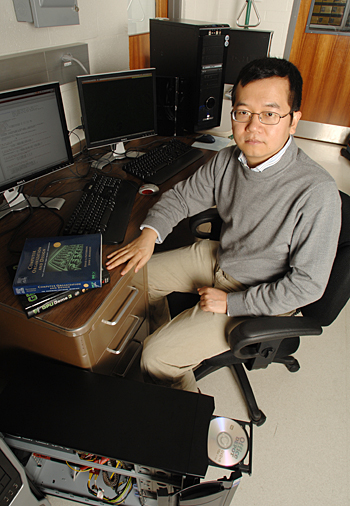The award, which is highly competitive, is bestowed on those scientists deemed most likely to become the academic leaders of the 21st century. Fewer than 20 percent of the proposals submitted to the annual competition are funded, according to NSF.
The five-year, $399,999 grant will support Li's research and education program in the optimization of code for high-performance computing platforms.
“I am quite excited about this research and very happy to receive this award so I can pursue my vision,” Li said.
The NSF project is designed to provide a new generation of compiler optimization technology to meet the needs of users of high-performance computing platforms, Li said, as the field has evolved from single core processors to multi-core processors and graphics processing units (GPUs).
Li said that new general high-performance computing platforms simultaneously run multiple programs and a large number of threads, which presents unprecedented challenges for code optimization. The programs face extensive competition for available resources and are being executed in an ever-changing environment.
The project will employ a systematic approach to optimization and adaptation through a system of context-aware and context-adaptive optimization, or CACAO. Li is developing tools to analyze programs, determine what computing resources are available, predict how the program will run in changing environments and extend existing technologies.
The bottom line, Li said, is to devise a framework to make it possible for programs to run faster.
The project is expected to provide new code optimization techniques that accelerate programs in high-performance computers, Li said, and those techniques and resources will be disseminated as open-source software tools and packages.
Li said the project would lead to more effective compilation and code generation in all domains, thus bringing broad benefits to computer users in general and to those who require high computation power in particular.
He said the need for computational power is vital to a variety of disciplines in the sciences and engineering.
Li joined the UD faculty in 2006 after receiving his doctorate from the University of Illinois at Urbana-Champaign. He said the NSF project is a “very ambitious next step” after his doctoral work. Li received bachelor's and master's degrees in computer science and technology from Nanjing University, China.
Article by Neil Thomas
Photo by Kathy Atkinson


